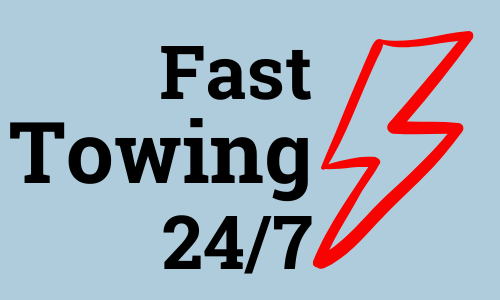Is The 2022 Toyota Tundra A Gas Guzzler When Towing?
So far in 2022, several pundits have pointed towards the Toyota Tundra as one of the most reliable alternatives to the Ford F-150, still the best-selling pickup trucks on the market. Toyota has overhauled the third generation of its pickup to the point where it's eschewed the V-8 in favor of a twin-turbo V6. It still packs plenty of power, enough to qualify for a run involving the type of loads that YouTube's The Fast Lane Truck channel wanted to use in a unique evaluation. In March, they tested the Tundra in a long-distance challenge across the U.S. to assess how well the vehicle performs while pulling cargo of varying weight.
The Tundra V-6 Boasts 389 HP
The YouTubers tested the latest Tundra, featuring a 10-speed automatic transmission and a 3.5-liter turbocharged V-6 that kicks out 389 horsepower and 479 lb.-ft. of torque. So far, a Fast Lane Truck correspondent observed that this Tundra offers a rather smooth ride as both a two-wheel and all-wheel-drive vehicle, thanks to a Toyota Racing Development (TRD) off-road package and 20-inch Falken Wildpeak all-terrain tires.
Before the YouTubers shot video on this endeavor, the Tundra had already hauled a Black Series camping trailer from Los Angeles to Denver. This time, they plan to use the Tundra to tow a Ford F-100 pickup truck secured onto a flatbed trailer from Denver to Phoenix. The truck cargo is somewhat more aerodynamic than the boxy trailer, which will cut down on resistance, but is also considerably a heavier haul. What the testers want to gauge is the effect that a difference in weight and aerodynamics will have on the Tundra's fuel efficiency.
A test drive of the 2022 Toyota Tundra revealed that the pickup garnered roughly 15 miles per gallon (mpg) when driven on highways and streets. To be fair, the test also incorporated a number of off-road activities to test other features of Toyota's latest pickup. It's also likely why statistics released by the Environment Protection Agency (EPA) were somewhat more generous to the model. The agency's estimates indicated that combined city and highway results ranged from 19-22 mpg (with city driving between 17-19 mpg and highway results between 20-24 mpg). That said, none of these tabulations involved the Tundra towing any kind of load whatsoever.
Toyota Towing 8100-lb Load
The tandem-axle Black Series trailer that the Tundra hauled from Los Angeles weighed 7,000 lbs. And at 25 feet in length and tall enough to jut considerably above the pickup's cab roof, that surface area packed enough wind resistance to play havoc with aerodynamics. The driver also reported fighting a headwind en route to Denver. By his calculations, based on a 225-mile stretch of a journey that consumed 26.144 gallons, his mpg involving the Black Series trailer amounted to 8.6. A similar test during one stretch where he fought a headwind on the highway gave him a result of 8.3 mpg.
The trip to Phoenix involves attaching a 3,000-lb. 18-foot tandem-axle Ironbull flatbed trailer with a Ford F100 truck weighing 5,100 lbs strapped to it. In terms of height, the Ford is considerably shorter than the trailer used in the previous venture. What also might help on this trip is a weight distribution features on the hitch that prevents the load from swaying side to side while distributing more weight towards the front of the truck. "Hopefully, it's a little bit more level than it would be otherwise without the weight distribution hitch," said the driver after hitching and chaining the trailer to the truck. "Altogether, it's a pretty cool looking setup."
So far, as the truck started into the final leg of the trip to Phoenix, the load didn't provide any issues regarding the truck's handling. "This is a smooth ride, especially with the weight distribution and load distribution attachment on the hitch," he noted as the Tundra cruised effortlessly on the four-laner. "It's super quiet, super nice, super stable. "This is a pleasant rig to take on a highway and also highway towing trip." But without warning and only 10 miles away from his next stop, the truck warns that the fuel tank is nearly empty. Nearly running on fumes, he's cutting it pretty close.
This Pickup Went 269 Miles Before Refueling
At a truck stop in Las Vegas, the driver fuels up to calculate the mpg and provide the moment of truth. This leg of the trip, from north of Colorado Springs to the truck stop covered 269 miles, requiring 28.789 gallons of gas. After calculations, it turns out that the Tundra's result rang in at 9.3 mpg, an improvement of 0.6 mpg from the previous Black Series trailer venture. While the numbers were close, the driver notes that the camper's lighter load from the previous trip didn't have a positive effect on the outcome, saying "a camper will always be more taxing on your tow vehicle for fuel efficiency, and of course just total power that your vehicle can produce."
